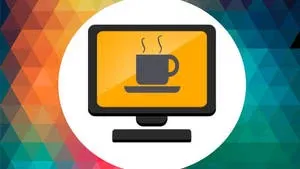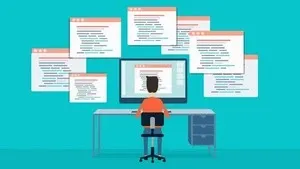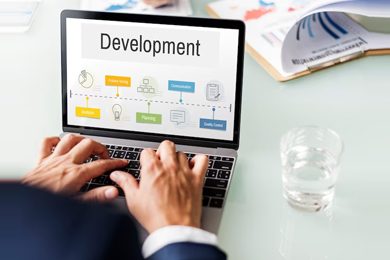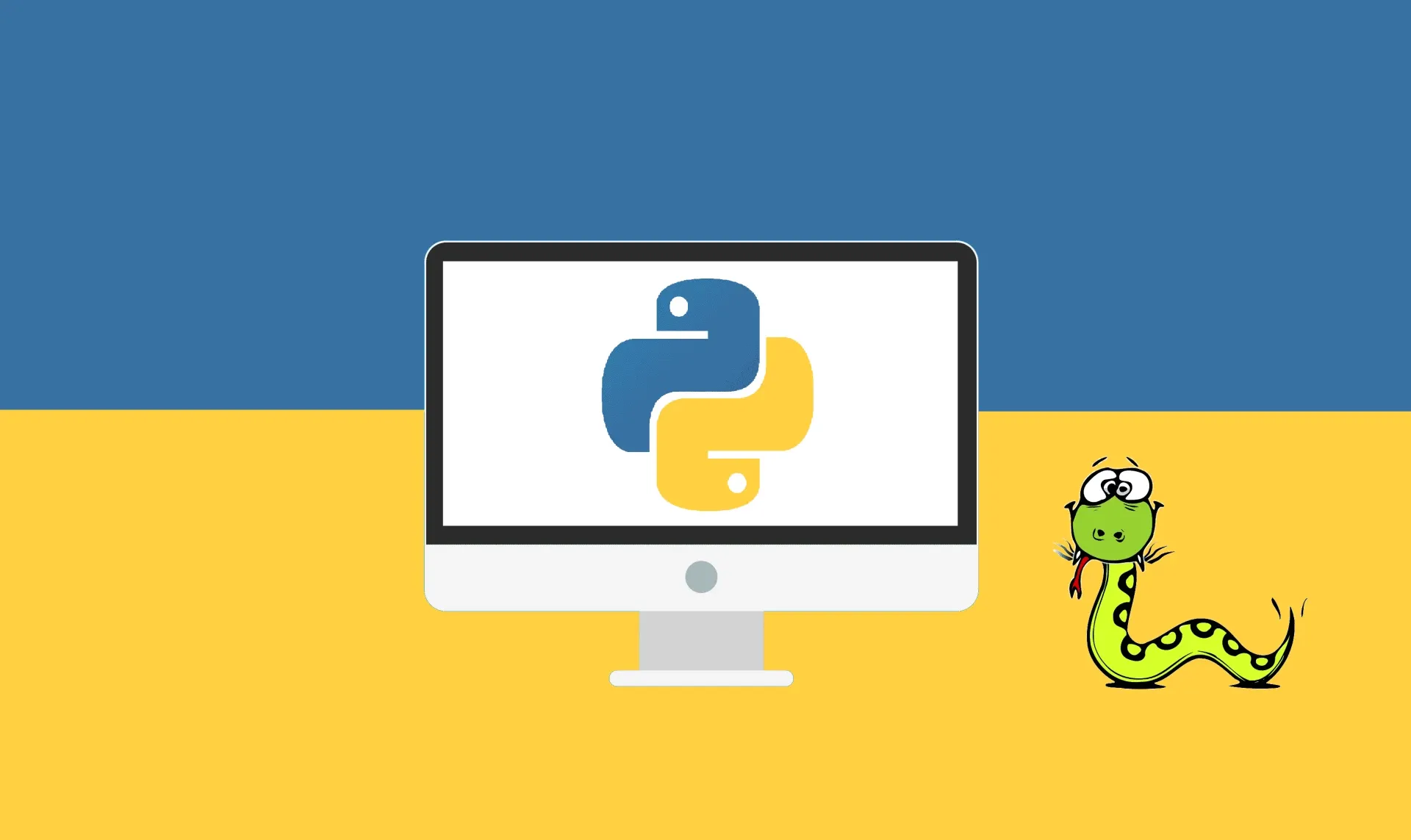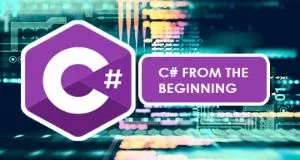This plan includes
- Limited free courses access
- Play & Pause Course Videos
- Video Recorded Lectures
- Learn on Mobile/PC/Tablet
- Quizzes and Real Projects
- Lifetime Course Certificate
- Email & Chat Support
What you'll learn?
- You will have the basic knowledge of java.
- You will learn all the basic and medium level concepts.
- You will get the knowledge from scratch with real-time and real-life examples.
- After this course, you can develop own applications.
Course Overview
What is the course about?
"Learn Java from scratch” covers all the essential programming techniques and concepts, that are required to build the real-time Java application in English language.
I have tried to bring all the essential topics of java programming (which is the necessity of every student ) under one umbrella, to save your time, to save your money and to help you learn what you want to learn.
What kind of materials are included?
This course is the aggregation of all the important topics of Java. This course covers
-
Introduction to Java
-
What is Java?
-
Brief History of Java
-
Why is Java called Java?
-
Where is Java used?
-
Types of Java Applications
-
Java feature
-
-
Java Class Structure
-
What is Java class structure?
-
Anatomy of Java class
-
-
Java Internal Operations
-
Runtime Operations
-
How Java works internally?
-
Why is Java platform independent?
-
JVM VS JRE VS JDK
-
-
Java Variables
-
Java Operators
-
Java Conditional Statements
-
Java Loop Control Statements
-
Java class basic syntax
-
Garbage Collection
-
Encapsulation
-
Inheritance and types in detail using sample programs
-
Overloading vs Overriding
-
Abstraction
-
Access Modifiers
-
Collections in detail
-
Multi-threading in detail
-
Java I/O (Input/Output)
-
and many more
How is this course structured?
-
I will teach you in a hierarchical way from the basic to advance level.
-
There is a video lecture on every topic explained in English.
Who is the target audience?
-
An Absolute beginner who want to learn java from scratch
-
If you know the basics of Java but wants to go deep in Java, to learn the object-oriented concepts, graphical user interfaces and database in Java then this course is for you!
-
Students can take this course who want to learn java from scratch
Pre-requisites
- You don't need to know anything. I will teach you each and everything.
Target Audience
- This course is for any students who want to learn Java from scratch.
Curriculum 114 Lectures 06:23:23
Section 1 : Introduction to Java
- Lecture 2 :
- Why is Java called Java?
- Lecture 3 :
- Where is Java used?
- Lecture 4 :
- Types of Java Applications
- Lecture 5 :
- Java Features
- Lecture 6 :
- Encapsulation
Section 2 : Java Class Structure
- Lecture 1 :
- Java Class Structure
- Lecture 2 :
- Anatomy of Java class
- Lecture 3 :
- What is Java class?
- Lecture 4 :
- Class vs Object
- Lecture 5 :
- What are Constructors? & Constructor Types
- Lecture 6 :
- Naming Conventions
- Lecture 7 :
- Single Line Comment vs Multiple Lines Comments
Section 3 : Java Internal Operations
- Lecture 1 :
- Runtime Operations
- Lecture 2 :
- How Java works internally?
- Lecture 3 :
- Why is Java platform independent?
- Lecture 4 :
- JVM VS JRE VS JDK
Section 4 : Introduction to NetBeans
- Lecture 1 :
- How to create a new projects in NetBeans?
Section 5 : Java Variables
- Lecture 1 :
- Variables in Java
- Lecture 2 :
- keywords in Java basic
- Lecture 3 :
- Memory creation
Section 6 : Data types
- Lecture 1 :
- Primitive data types in detail
- Lecture 2 :
- Sample program to explain about primitive data type "byte"
- Lecture 3 :
- What is unicode? Why Java uses unicode over other standards?
- Lecture 4 :
- Sample program to explain about unicode
- Lecture 5 :
- Primitive data types - old lecture
Section 7 : Java String
- Lecture 1 :
- String introduction
- Lecture 2 :
- String handling approaches
- Lecture 3 :
- Sample program to explain about String
- Lecture 4 :
- String literal vs new keyword
Section 8 : Java Operators
- Lecture 1 :
- Java Operators - old lecture
- Lecture 2 :
- Arithmetic operators in detail with sample program
- Lecture 3 :
- Relational operators in detail with sample program
- Lecture 4 :
- Logical "AND" operator in detail with sample program
- Lecture 5 :
- Logical "OR" operator in detail with sample program
- Lecture 6 :
- Java Operators Sample Program - old lecture
- Lecture 7 :
- ternary operator statement syntax, real-life examples and sample program
Section 9 : Java Conditional Statements
- Lecture 1 :
- if-else conditional statement basics
- Lecture 2 :
- what is "if else" in Java? - old lecture
- Lecture 3 :
- if conditional statement syntax, real-life examples and sample program
- Lecture 4 :
- if-else-if ladder syntax, real-life examples and sample program
- Lecture 5 :
- nested if conditional statement syntax, real-life examples and sample program
- Lecture 6 :
- If else
- Lecture 7 :
- switch sample program
Section 10 : Java Loop Control Statements
- Lecture 1 :
- Java Loop Control Statements basics
- Lecture 2 :
- for loop concept, syntax, and sample program
- Lecture 3 :
- while loop concept, syntax, and sample program
- Lecture 4 :
- do-while loop concept, syntax, and sample program
- Lecture 5 :
- break concept, syntax and sample program
Section 11 : Regex
- Lecture 1 :
- Regex introduction
- Lecture 2 :
- Regex important classes
Section 12 : Java import
- Lecture 1 :
- Import statements
Section 13 : Pass by Value vs Pass by Reference
- Lecture 1 :
- Pass by Value vs Pass by Reference
- Lecture 2 :
- Reference variable
Section 14 : Garbage Collection
- Lecture 1 :
- Cleaning unused memory using Garbage Collector
- Lecture 2 :
- Garbage collecction using sample program
Section 15 : Exception Handling in Java
- Lecture 1 :
- What is Exception in Java and their types?
- Lecture 2 :
- Exception Methods in Java
- Lecture 3 :
- try catch in Java
- Lecture 4 :
- Multiple catch in Java
- Lecture 5 :
- finally block in Java
Section 16 : Inheritance
- Lecture 1 :
- Inheritance
- Lecture 2 :
- Single Inheritance
- Lecture 3 :
- Multilevel Inheritance
- Lecture 4 :
- Hierarchical Inheritance
- Lecture 5 :
- Why Java doesn't support Multiple Inheritance?
- Lecture 6 :
- Object class
Section 17 : Abstraction
- Lecture 1 :
- Abstract class
- Lecture 2 :
- Market Interface
Section 18 : Access Modifiers
- Lecture 1 :
- Access Modifiers
Section 19 : Special Keywords
- Lecture 1 :
- static keyword
- Lecture 2 :
- final keyword
- Lecture 3 :
- enum keyword
- Lecture 4 :
- instanceof keyword sample program
Section 20 : Method overloading & Method overriding
- Lecture 1 :
- Method overloading
- Lecture 2 :
- Method overriding
- Lecture 3 :
- Variable arguments
Section 21 : Collections
- Lecture 1 :
- Collections Framework
- Lecture 2 :
- Collections in Java
- Lecture 3 :
- Collections Benefits
- Lecture 4 :
- Collections Hierarchy
- Lecture 5 :
- Collections Interface methods
- Lecture 6 :
- Iterator Interface
- Lecture 7 :
- List Interface explained using NetBeans
- Lecture 8 :
- List Interface methods
- Lecture 9 :
- ArrayList
- Lecture 10 :
- ArrayList constructors
- Lecture 11 :
- ArrayList sample program
- Lecture 12 :
- When to use ArrayList?
- Lecture 13 :
- LinkedList Introduction
- Lecture 14 :
- LinkedList methods
- Lecture 15 :
- LinkedList constructors
- Lecture 16 :
- LinkedList sample program
- Lecture 17 :
- ArrayList vs LinkedList
- Lecture 18 :
- Set Introduction
- Lecture 19 :
- Set Interface explained using NetBeans
- Lecture 20 :
- Set Interface methods
- Lecture 21 :
- HashSet Introduction
- Lecture 22 :
- HashSet constructors
- Lecture 23 :
- LinkedHashSet Introduction
- Lecture 24 :
- LinkedHashSet Constructors
- Lecture 25 :
- LinkedHashSet Capacity and LoadFactor
- Lecture 26 :
- TreeSet Introduction
- Lecture 27 :
- TreeSet Constructors
- Lecture 28 :
- TreeSet sample program
- Lecture 29 :
- Map Interface explained using NetBeans
- Lecture 30 :
- LinkedHashMap Program
- Lecture 31 :
- Stack sample program
- Lecture 32 :
- Priority Queue Sample Program
- Lecture 33 :
- Vector sample program
Section 22 : Java basic program
- Lecture 1 :
- Program to check whether it's a alphabet or not
- Lecture 2 :
- Program to check whether a year is leap year or not
- Lecture 3 :
- Program to check whether a number is prime or not
- Lecture 4 :
- Program to check whether a number is armstrong or not
Our learners work at
Frequently Asked Questions
How do i access the course after purchase?
It's simple. When you sign up, you'll immediately have unlimited viewing of thousands of expert courses, paths to guide your learning, tools to measure your skills and hands-on resources like exercise files. There’s no limit on what you can learn and you can cancel at any time.Are these video based online self-learning courses?
Yes. All of the courses comes with online video based lectures created by certified instructors. Instructors have crafted these courses with a blend of high quality interactive videos, lectures, quizzes & real world projects to give you an indepth knowledge about the topic.Can i play & pause the course as per my convenience?
Yes absolutely & thats one of the advantage of self-paced courses. You can anytime pause or resume the course & come back & forth from one lecture to another lecture, play the videos mulitple times & so on.How do i contact the instructor for any doubts or questions?
Most of these courses have general questions & answers already covered within the course lectures. However, if you need any further help from the instructor, you can use the inbuilt Chat with Instructor option to send a message to an instructor & they will reply you within 24 hours. You can ask as many questions as you want.Do i need a pc to access the course or can i do it on mobile & tablet as well?
Brilliant question? Isn't it? You can access the courses on any device like PC, Mobile, Tablet & even on a smart tv. For mobile & a tablet you can download the Learnfly android or an iOS app. If mobile app is not available in your country, you can access the course directly by visting our website, its fully mobile friendly.Do i get any certificate for the courses?
Yes. Once you complete any course on our platform along with provided assessments by the instructor, you will be eligble to get certificate of course completion.
For how long can i access my course on the platform?
You require an active subscription to access courses on our platform. If your subscription is active, you can access any course on our platform with no restrictions.Is there any free trial?
Currently, we do not offer any free trial.Can i cancel anytime?
Yes, you can cancel your subscription at any time. Your subscription will auto-renew until you cancel, but why would you want to?



 Tech & IT
Tech & IT
 Business
Business
 Coding & Developer
Coding & Developer
 Finance & Accounting
Finance & Accounting
 Academics
Academics
 Office Applications
Office Applications
 Art & Design
Art & Design
 Marketing
Marketing
 Health & Wellness
Health & Wellness
 Sounds & Music
Sounds & Music
 Lifestyle
Lifestyle
 Photography
Photography



